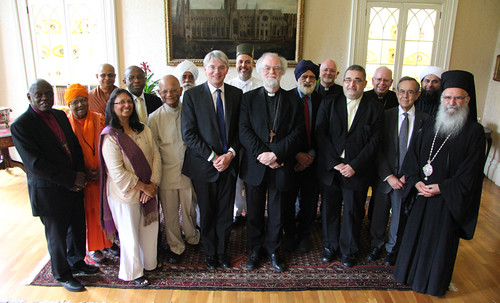13th July 2012
Religion against Poverty and Injustice

I take my title from the Vatican newspaper L’Osservatore Romano, which on 3 July published a report on an important new development initiative in the United Kingdom, called “Faith Partnership Principles”.
On 26 June, the Faith Partnership Principles paper was launched at an inter-faith event at Lambeth Palace, convened by the Archbishop of Canterbury and including religious leaders from all the principal faiths represented in the UK. The document was an important step in a process of work that started over a year ago between Britain’s Department for International Development (DFID) and faith leaders – including representatives of the Catholic Church and the British members of the Caritas Internationalis network: CAFOD, SCIAF and Trocaire. The aim was to recognise the essential role of religious organisations in the fight against poverty and injustice – in terms of both the local community and international development – and set out the principles that will guide the British government’s relationship with faith in the area of development work, through DFID, in the future.
DFID Secretary of State, Andrew Mitchell, said at the launch that: “The Faith Partnership Principles paper marks a new era of understanding and cooperation between Government and faith groups on international development”. The Archbishop of Canterbury spoke of “reciprocal understanding … and collaboration between Government, civil society and religious communities”. The document points the way forward in many areas, and sets out just how government and religious communities will work together in the future.
Of course, DFID has always worked with faith groups to deliver its international development goals. It is working with Progressio on tackling HIV in the Yemen, with CAFOD in its work with Catholic Justice and Peace Commissions in nine African countries, and with Anglican and Catholic Churches in the Sudan to improve education provision. We hope that the Faith Partnership Principles will strengthen that relationship, and improve our partnership in pursuit of the common objective of tackling poverty and deprivation. As the paper concludes: “Our fundamental proposition is that by working together we will achieve more through our common endeavours”.